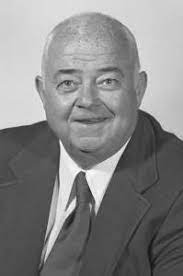Bill Boylan is arguably the most important figure in Monmouth basketball history, if not the entire Monmouth athletic department. As basketball coach from 1956-1977 he won 6 NAIA district titles and the 1969 Eastern Collegiate Athletic Conference championship. He also spent a quarter-century as Athletic Director and 2 years as President of the Metropolitan Collegiate Basketball Association. His achievements are still remembered via the Bill Boylan Award (presented annually to the senior student-athlete who demonstrates the traits of leadership/sportsmanship/scholarship/athletic ability) and in 1981 he was part of the 1st class inducted into the Monmouth College Athletic Hall of Fame. HoopsHD’s Jon Teitel got to chat with another Monmouth legend in Ron Kornegay (who remains the school’s all-time leading scorer with 2526 PTS) about playing for Bill, working for him as an assistant, and eventually replacing him as head coach. Today marks the 30th anniversary of Monmouth renaming its gym in honor of Bill on May 16, 1992, so we take this time to reflect on his life/legacy.
Boylan was your coach at Monmouth: what made him such a great coach, and what was the most important thing you ever learned from him? He was just a great guy to play for: he never raised his voice and we would run through a wall for him. After 4 years of playing for him I spent 8 more years as his assistant.
In the 1966 NAIA tourney Earl Beechum scored 46 PTS in a 2-PT win by Midwestern State: how close did you come to winning that game? It was a barnburner and Earl had a great game. We played them tooth-and-nail my freshman year in a packed gym with 12,000 people.
In the 1968 NAIA tourney he had a 1-PT loss to Westminster at the buzzer: where does that rank among the most devastating losses of his career? Every time you looked up during that tourney there was another team losing at the buzzer. It was an old arena where the same people had the same seats every single year. I think it is the toughest tourney in the world because you have to win 5 games in a single week.
What are your memories of the 1969 NAIA tourney (he had a 5-PT loss to MVP Jake Ford and eventual runner-up Maryland State)? I had heard of Jake but never seen him play before. I fouled out with about 5 minutes to go.
He won 6 NAIA District 31 titles in a 10-year span from 1966-1975: how was he able to be so successful for such a long period of time? The campus was beautiful and we got a new gym in 1965 so it was easy to recruit players. The location was also great because we were only 1 mile from the beach!
In addition to head basketball coach he also served as athletic director: how was he able to balance the 2 gigs at the same time? He really started the athletic program when we were just a junior college and hired some good people to make it successful. He never played the game but just read a lot of books and went to a lot of clinics. He was 5’6”/300 pounds but became a student of the game and would adjust his system to fit the talent he had.
In 1977 you ended up replacing him as head coach: why did he decide to step down, and how much pressure was there on you to follow in his large footsteps? You always feel pressure when replacing someone that successful but he remained as athletic director. I could always go to him for advice so it was a very easy transition for me.
Boylan was awarded the Metropolitan Officials Schoenfeld Award for Sportsmanship on 6 occasions, and the Bill Boylan Award is presented annually to the Monmouth senior student-athlete who demonstrates the traits of leadership, sportsmanship, scholarship and athletic ability: how much emphasis did he place on sportsmanship? That was his primary emphasis both on and off the court. He never got upset with officials: I never recall him getting a single technical and if any of his players got out of control he would pull them out of the game and talk to them.
In 1992 the school renamed its gym for him: what did it mean to him to receive such an outstanding honor? I am sure that it meant a lot to him. It was also an honor for his players to see him receive that honor.
When people look back on his career, how do you want him to be remembered the most? He will be remembered as a great coach but I think that he was a better person. He told us up front that he wanted us to graduate and would make sure we got the support necessary to make that happen.




